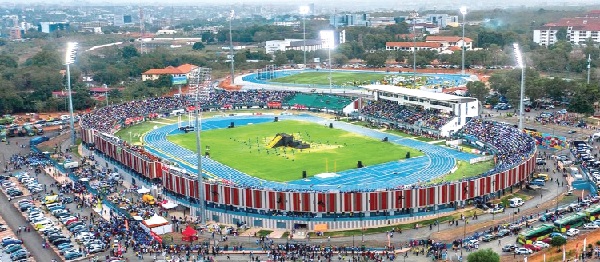GHANA has signalled its boldest sports investment drive in over a decade, placing sport at the centre of its 2026 economic and development agenda.
As the Black Stars began their early build-up with two matches in the 2025 Kirin Cup, including yesterday’s 0–2 loss to Japan in Tokyo, the financial foundation for their 2026 FIFA World Cup campaign was being laid back home.
At the heart of the 2026 Budget Statement is a decisive GH¢150 million allocation to support the Black Stars’ World Cup preparations and participation in Canada, Mexico and the United States.
This allocation, described by Finance Minister, Cassiel Ato Forson, as part of a broader “sustained investment in sports,” will cover pre-tournament camping, international travel, logistics, allowances and bonuses for players and technical staff led by Otto Addo, as well as support for other international competitions, including the 2026 Women’s Africa Cup of Nations.
High-stakes strategic investment
The GH¢150m allocation is more than a budget line; it is a deliberate capital injection into a high-visibility national asset.
Just as companies earmark significant funds for flagship global marketing campaigns, the government is treating World Cup participation as both a payoff for past investment and a catalyst for future brand exposure, projecting Ghana on one of the world’s biggest stages.
FIFA will also inject preparation support, but the bulk of the performance-driven incentives — bonuses for players and technical officials, welfare packages and competitive conditions that ensure the team arrives ready — remains the government’s responsibility.
And the Finance Minister, Dr Cassiel Ato Forson, made no secret of the government’s pride in the team’s achievement, describing the qualification as “a source of national pride” and an “impressive result”, one that justifies years of sustained public investment in elite sport.
The FIFA World Cup is a premium global advertising moment, one that can influence tourism, investor sentiment, and Ghana’s soft power.
Qualification alone guarantees global eyeballs and good money for the country’s football federation to invest in the sport, as well as enhance players’ market value. A strong performance multiplies them.
The budget’s tone makes it clear that the government sees Ghana’s fifth World Cup appearance as a commercial opportunity, not merely a sporting contest.
In business terms, the World Cup campaign is the sporting equivalent of a high-profile international marketing activation — the type that companies reserve for global launches.
The Black Stars’ qualification is being treated like a premium asset that deserves premium backing.
The government funding will cover pre-tournament camping, international travel, logistics, allowances, and performance incentives for Coach Otto Addo and his technical team.
Infrastructure push for growth
Perhaps the most ambitious sports investment in the 2026 budget is the allocation of GH¢200 million in capital expenditure for the construction of six new mini-stadia across regions without modern sporting facilities.
This represents one of the largest single-year sports infrastructure commitments in over a decade, signalling a major policy shift under the Ministry of Sports and Recreation.
The ministry will oversee the massive project, which forms part of the government’s broader Sports for Development Agenda, an infrastructure-driven policy designed to anchor sports as a driver of regional development, jobs, and community engagement.
The plan is precise and phased: three of the new stadiums are expected to break ground and reach completion in 2026, while the remaining five are scheduled for delivery by the end of 2028.
Dr Ato Forson announced during last Thursday’s budget presentation at Parliament that architectural designs and feasibility studies are already far advanced, a sign that the government aims to hit the ground running. For regions without modern arenas, this plan is transformative.
Stadia are economic engines, and the ripple effects are far-reaching: construction-phase employment, hospitality expansion, local tourism stimulation, community events, and improved domestic competition hosting.
In many countries, sports infrastructure forms the foundation for wider urban renewal. Ghana is signalling its intention to follow that model.
Building foundations of sports economy
The 2026 budget also includes critical structural reforms designed to make sports development more sustainable, less dependent on unpredictable budget cycles, and more aligned with international best practice.
The Ghana Sports Fund — approved by Cabinet and expected in Parliament next year — is the most significant of these structural moves.
It will provide a dedicated resource pool to finance athletes, federations, and sports development programmes.
Importantly, Sports Minister Kofi Adams has clarified that the fund comes without any new tax measures, a relief to businesses operating under tightening fiscal conditions.
Meanwhile, the National Sports Authority (NSA) will retain GH¢4.7 million in internally generated funds to sustain its operations.
Though modest, this retention demonstrates the government’s recognition of the need to strengthen sports institutions’ financial autonomy.
A major new initiative is the establishment of a National School Sports Authority in 2026.
This body will coordinate sports and physical education across schools, ensuring early talent identification and streamlining grassroots development, a long-overdue reform in a system where school sports have deteriorated over decades.
For investors and sponsors, this creates a clearer pathway for long-term talent development.
